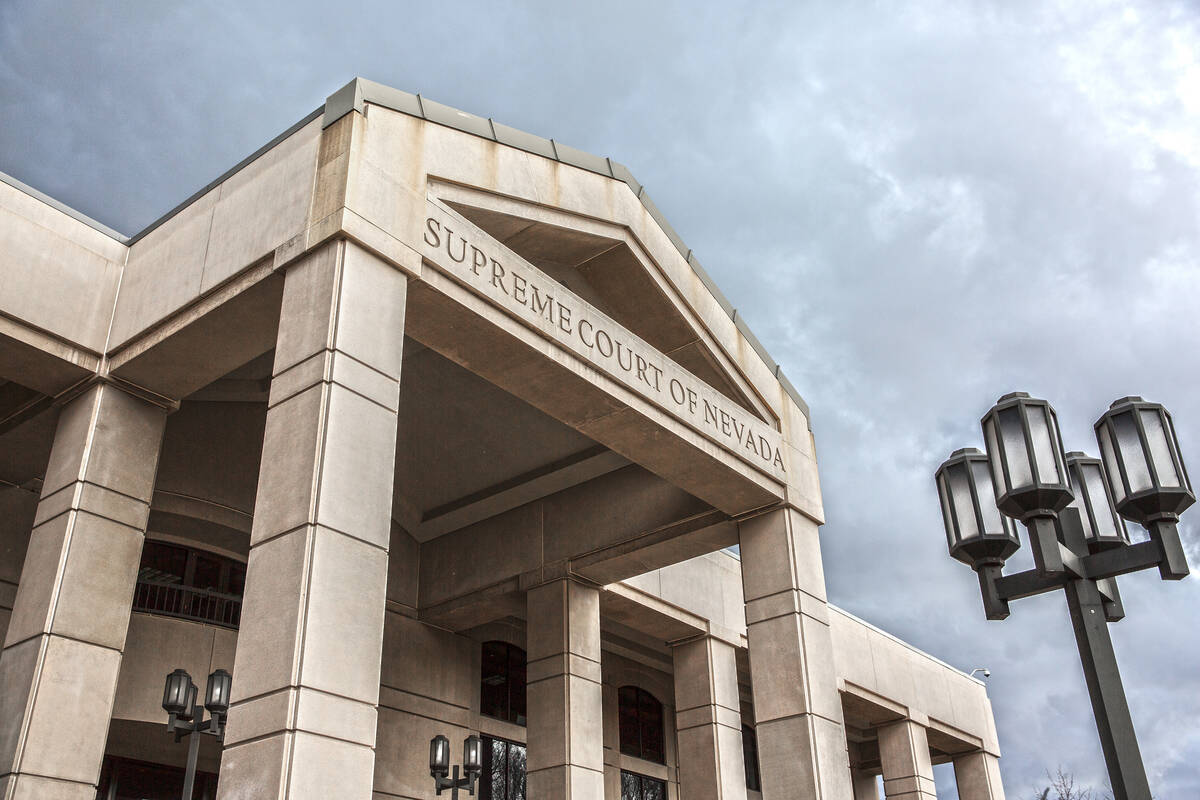Nevada’s high court urged to reject public education funding formula
The Nevada Supreme Court heard oral arguments Monday in a high-stakes lawsuit in which the plaintiffs allege that the underfunded public education system violates the state Constitution.
Nine parents originally filed the case in March 2020 in First Judicial District Court in Carson City, arguing that the state had failed in its responsibility to provide an adequate public education.
The District Court dismissed the lawsuit in October 2020, but the plaintiffs — four of whom have children in the Clark County School District — appealed the next month to the state’s highest court.
Despite that early setback, the plaintiffs are hoping to duplicate successes by education advocates in other states to force states to devote more money to public education, including in Washington state and Kansas.
Oral arguments allowing the justices to interject to ask questions were held Monday at the Regional Justice Center in Las Vegas and lasted about 45 minutes.
The plaintiffs’ attorney, Bradley Schrager, said he would refrain from reciting “the dismal truths about public education in Nevada because we know those.”
He argued the Nevada Constitution clearly establishes the right to an adequate education, saying the document used words of action and command to make that point.
Schrager — along with attorney Daniel Bravo, and Educate Nevada Now, an education advocacy organization — are representing parents who sued the state, the Nevada Department of Education, Nevada State Board of Education and Nevada Superintendent of Public Instruction Jhone Ebert.
Resources ‘fall egregiously short’
They allege in court documents that Nevada’s public school system, including its funding, resources and outcomes, “fall egregiously short of the sufficiency required by the Nevada Constitution.”
In dismissing the lawsuit last year, the District Court found the question of whether there’s a remedy or violation of the right to an adequate education be a political question and not a matter for the courts, Schrager said, but noted Monday the plaintiffs disagree.
Just because something is textually committed to a state agency or branch doesn’t mean it’s insulated from judicial review, he said.
“This is not a school money case,” but one about whether resources are sufficient to meet a constitutional charge to provide a meaningful education, he said.
Also, Schrager said, if uniform schools are a duty of the state and Legislature, the distribution of resources “can be just as important as how much money we’re talking about.”
The case shouldn’t be reduced simply to a matter of dollars, Schrager said, noting that plaintiffs did not ask the court to demand the state Legislature spend more money.
Heidi Parry Stern, solicitor general for the Nevada Attorney General’s Office, representing the state, acknowledged that a quality education is good policy.
Court’s role challenged
But she argued the Nevada Constitution doesn’t establish the right to education of a “particular level of quality,” nor does it allow the court to participate in a decision about what level of funding is sufficient to achieve that level.
The state Constitution, Stern said, provides sole discretion to the Legislature to provide the money it deems sufficient.
Stern also maintained the case is not subject to judicial intervention under the plain language in the Constitution.
Plaintiffs aren’t seeking to overturn a particular funding scheme set forth by the Legislature, but are instead seeking to impose aspirational standards on the state, she said.
It is not known when the Nevada Supreme Court will rule on the case.
Lawsuits in other states have forced legislatures to make major changes in the way they fund education.
A 2007 lawsuit in Washington over public education funding led to a more than decadelong legal battle after the state Supreme Court ruled in favor of plaintiffs in 2012, saying the state Constitution had been violated.
The state was eventually held in contempt of court and fined $100,000 per day until the issue was resolved in 2018.
There was also a decadelong legal battle in Kansas over public school funding and the state’s Supreme Court said in 2019 the state had finally reached an adequate level of funding after approximately $90 million in spending was added by the Legislature.
Contact Julie Wootton-Greener at jgreener@reviewjournal.com or 702-387-2921. Follow @julieswootton on Twitter.




























